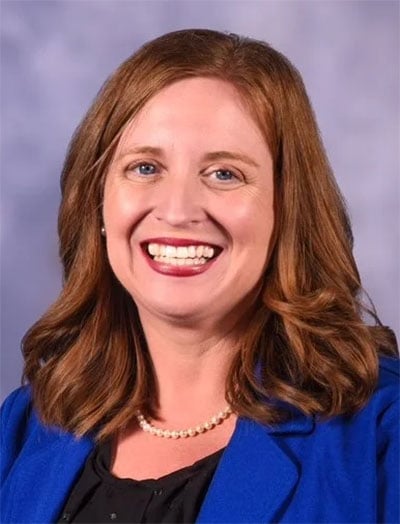By Rep. Brent Yonts
Special to KyForward
When it comes to strengthening the state’s public pension systems, it’s good to remember the words of H.L. Mencken, a famous satirist from the early 20th century who said: “For every complex problem, there is an answer that is clear, simple and wrong.”
If learning about this issue is like earning a college degree, then I signed up for the equivalent of a doctorate three years ago, when I was appointed to the temporary Task Force on Kentucky Public Pensions. State leaders created it with the goal of finding – and building support for – solutions that would begin to reverse looming liabilities in the decades ahead for Kentucky Retirement Systems, which manages the retirement of state and local government employees.
Two years ago, when legislators began considering the task force’s recommendations, I became chair of the House State Government Committee, a role that put me front and center in helping shepherd a plan through the House and Senate. The result of this bipartisan work became Senate Bill 2 and House Bill 440, twin laws that addressed the system’s long-term liability and its long-term stability.
Despite this experience, I do not consider myself an expert on pension issues, but I do have greater insight into how these problems arose and what effect supposedly “easy” fixes could have over the long-term. Those who believe this issue is clear and simple are, as Mencken said, wrong.
The reality is that the system’s problems are due to a combination of factors, including a major market downturn that affected pension plans across the country. I agree that the state not paying the full actuarially required contribution during this time was a factor as well, but we cannot look at this decision in a vacuum: Budgets became almost impossibly tight, and critical programs like education and Medicaid needed to be protected.
Other factors behind the liability developed as a result of decisions that seemed reasonable at the time with the information we had in hand. Providing cost-of-living raises without additional funding – because the retirement system was doing great financially at the time and we thought it could absorb it – is one such example.
If there is a silver lining to this crisis, it is that legislators, retirees and interest groups alike are now much more aware of the long-term problems that can arise from seemingly small changes.
Another major step forward is the increased transparency of the system’s investment strategy and administration, which I credit in part to the creation of the Public Pension Oversight Board in 2013.
One of the issues we have covered in-depth on this board, which I co-chair, is the set of actuarial assumptions that KRS’ Board of Trustees uses to gauge the size of its assets and liabilities. That information determines what state and other public employers are expected to pay into the system each year.
Determining this amount requires the actuary to apply assumptions adopted by the board about things that are, at least in part, unknown or difficult to predict, including the rate of return on investments and payroll growth.
Kentucky law requires KRS to have a more in-depth actuarial review at least once every decade, although the system typically performs that about every five years. This compares the system’s current assumptions and funding with actual experience, to see how far apart these two figures actually are. This evaluation also helps determine if changes to assumptions and methods should be made.
The most recent of these actuarial studies came last year, and it included a recommendation to reduce the investment return assumption from 7.75 percent to 7.5 percent. While the data from the study indicated a lower value closer to 7 percent, the actuary decided that various mitigating issues negated the need for that. While that seems relatively minor, it’s not; a drop of just a few tenths of a percentage point means millions of dollars more will be needed from the state and other contributing employers.
We also will have to pay more if any of these funding factors are inaccurate. That’s one reason why the oversight board recommended that KRS hire a separate actuary – a second opinion, if you will – to perform a more independent review of assumptions and funding methods. Results should be ready later this summer.
Another pension issue that draws attention is the “inviolable contract” between system participants and the state. Cities and states alike have debated to what degree they can change benefits for current employees and retirees, especially if the governments are forced into bankruptcy because they cannot keep their retirement systems solvent. Fortunately, we have not had to have that discussion here in Kentucky.
That’s partly because of the 2013 reforms and new money authorized by the General Assembly, but also because the inviolable contract language in Kentucky’s law is believed to be among the strongest in the nation. Altering the contract for current employees and retirees would be difficult to defend in court, even if the state wanted to go that route.
Many in the public may wonder why we simply cannot shut the door on the retirement systems and convert them to private accounts. The inviolable contract is a key reason why this is unworkable, but it also would be bad public policy.
These systems are a major reason why we have been able to attract many state and local government employees and teachers who could earn more elsewhere. In choosing public service, they accept relatively lower wages for more stability in retirement. If employees are promised a certain level of benefits, and they contribute part of their own paycheck like anyone else in the private sector with a retirement plan, then they should be entitled to receive what they have earned over their career. It’s crucial to emphasize that this approach worked extremely well in the decades leading up to the financial crisis eight years ago.
It has become common for many to speak negatively about the condition of public retirement, but they should know that it has the full attention of the General Assembly and governor alike and will for years to come. We recognize the severity of the issue and are taking steps to right the ship and steer a new course.
This is not something than can be accomplished overnight, but it can and will be done. We will ensure that promises made are promises kept, and that goes for public employees, retirees and taxpayers alike.
Rep. Brent Yonts represents District 15, which covers Muhlenberg County and part of Hopkins County. He is co-chair for the Public Pension Oversight Board, chair of the State Government Session Committee and co-chair of the interim committee.


















